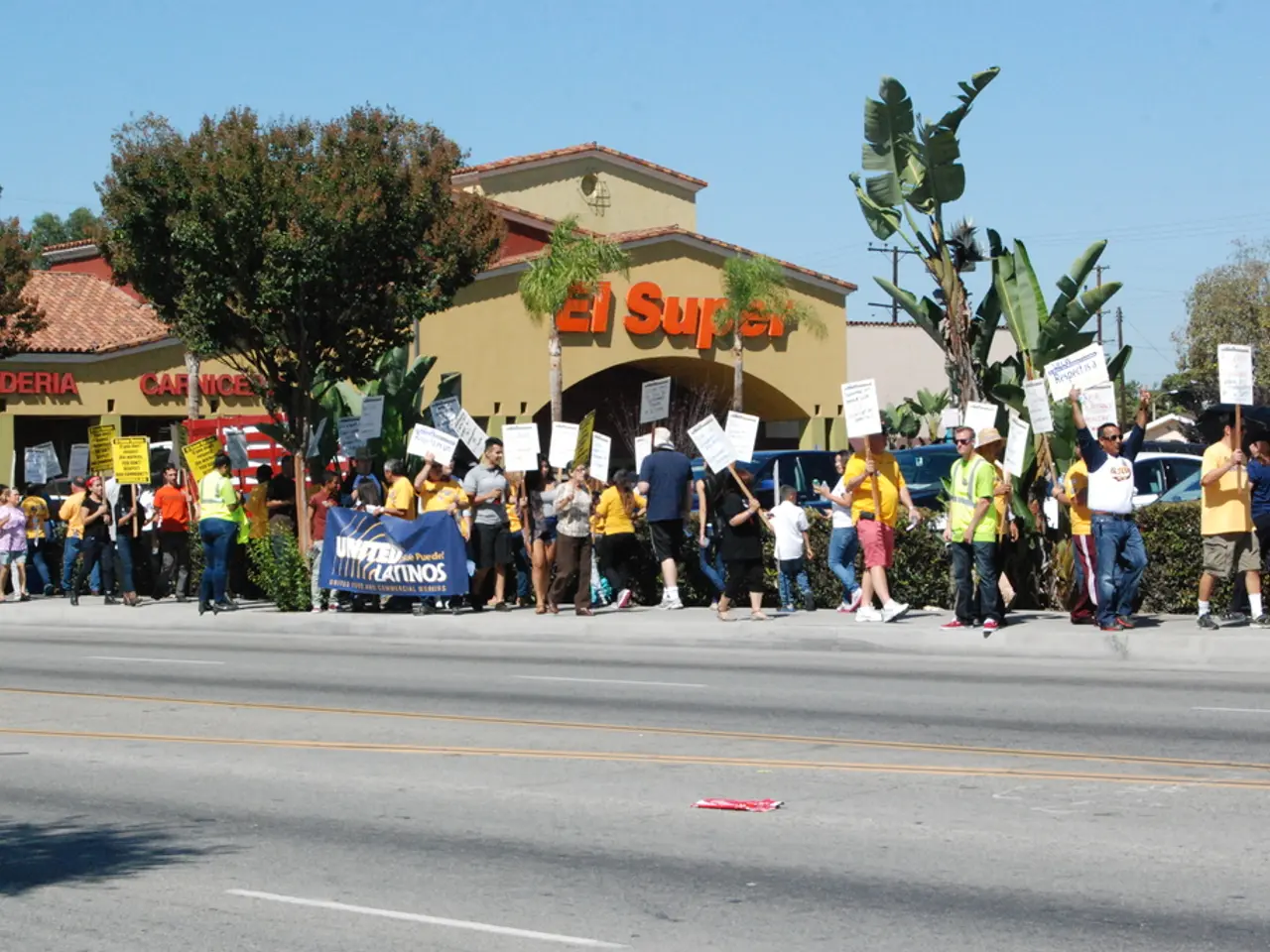Democrats from Texas abandon parliament to halt GOP proceedings; examining the history of this legislative maneuver's effectiveness.
Texas Democrats have staged a walkout to block Republican-led redistricting plans, denying the quorum necessary for legislative business. This tactic, while historically symbolic and difficult to sustain, aims to temporarily halt the passage of redistricting maps that Democrats view as heavily partisan and suppressive to voters of color.
In Texas, over 50 Democrats walked out in 2025 to block a map that could add up to five Republican congressional seats favored by former President Trump’s agenda. The current legislature is in a 30-day special session to consider the proposed map and other specific agenda items.
The Texas House changed its rules to add a $500-a-day fine for every day other lawmakers are out of work. However, the Democrats' walkout has set Texas' redistricting battle in a national context, inspiring other states like California to consider retaliatory map-drawing to counteract Republican advantages.
The tactic has precedent in Texas, dating back to 1870, and has surfaced multiple times, including in 1979, 2003, and 2021. Experts view the recent walkout mainly as a "nuclear option" to draw attention and serve as a messaging tool rather than a guaranteed legislative block since sustaining it through an entire legislative session is rare.
While the walkout has stalled legislative action, it has had limited success historically. Democrats acknowledge they may ultimately lose the battle in Texas but hope to trigger a broader, national fight against aggressive partisan redistricting, with other Democratic-led states pledging to redraw their own maps to increase blue seats as a form of retaliation.
Similar walkouts have occurred in other states, with varying outcomes. For example, in Oregon in 2023, Republican legislators staged a prolonged walkout to block Democratic legislation. That walkout lasted six weeks and resulted in political consequences like Measure 118, barring those who walk out from re-election.
Democratic leaders in states like New York, California, and Illinois have welcomed the Texas Democrats and taken up their cause. Texas Attorney General Ken Paxton and other Republican lawmakers have called for the arrest of the Democrats who left the state. The new redistricting map, if passed, would add up to five more Republican congressional seats in the U.S. House.
New York Gov. Kathy Hochul vowed to "do everything in our power to stop this brazen assault." Efforts to remove the lawmakers would likely face legal challenges. The Democrats hope their efforts will compel Republicans to make changes to the redistricting process.
In summary, legislative walkouts in Texas and other states serve as high-stakes tools by minority parties to influence redistricting outcomes and broader political power struggles. They typically stall or symbolically challenge redistricting but rarely stop it outright without sustained minority participation. The 2025 Texas walkout has intensified national tensions over redistricting and inspired similar partisan retaliations elsewhere, deepening the contentious nature of electoral map drawing in the U.S.
- The Texas Democrats' tactic to block partisan redistricting maps draws support from various sectors, including science news, personal growth, and mindfulness communities, who view the move as a rallying cry for values-based advocacy.
- In the realm of education-and-self-development, individuals are encouraged to embody the goal-setting skills seen in the Democrats' resolute course of action, stressing the importance of lifelong learning and skills-training.
- The recent walkout in Texas sheds light on the impact of politics, not only locally but also on a national scale, influencing policy-and-legislation discussions related to war-and-conflicts and crime-and-justice.
- Career-development experts analyze the walkout from the perspective of job-search strategy, teaching job seekers the importance of being adaptable and persevering in the face of adversity.
- Meanwhile, the general-news arena sparked debates on the ethics of political exploitation evident in the redistricting process.
- Online-education platforms launched interactive sessions on understanding the intricacies of policy-and-legislation, inviting experts and politicians to share insights on the implications of partisan redistricting on migration patterns.
- Plus, the ongoing redistricting battle in Texas rekindles discussions on the impacts of car-accidents, fires, and other local crisis management policies, as redrawn districts might compromise emergency service provisions for diverse communities.
- Furthermore, sports enthusiasts across NFL, sports-betting, American football, and NCAA football discuss the ramifications of redistricting on their favorite teams, assessing the potential shifts in representation for their teams and communities.
- Echoing the ethos of the walkout, productivity trainers emphasize the importance of prioritizing meaningful work over mundane tasks and remaining steadfast in the pursuit of personal growth and, by extension, societal change.
- Within the realms of education and political discourse, individuals engage in introspective discussions, contemplating the role of car-accidents, fires, and other untimely incidents as a call to mindfulness, unity, and a commitment to learning.
- The soccer community of football fans passionately discuss the role of sports in fostering cross-cultural understanding and resilience, often bringing journalistials akin to investigative journalism in their analysis.
- Moreover, the recent redistricting stalemate captures the interest of the social sciences, where researchers examine its cause and implications for the future of political cooperation and migration.
- In the context of job markets and economy, employment experts scrutinize the potential impact of the redistricting debate on migration trends, job opportunities, and career stability within politics and other sectors.
- Simultaneously, local media outlets cover the story comprehensively, offering analysis and opinion pieces on the challenges associated with partisan redistricting, emphasizing the urgency of policy reform and voter engagement to ensure a fair, inclusive, and representative democracy.




